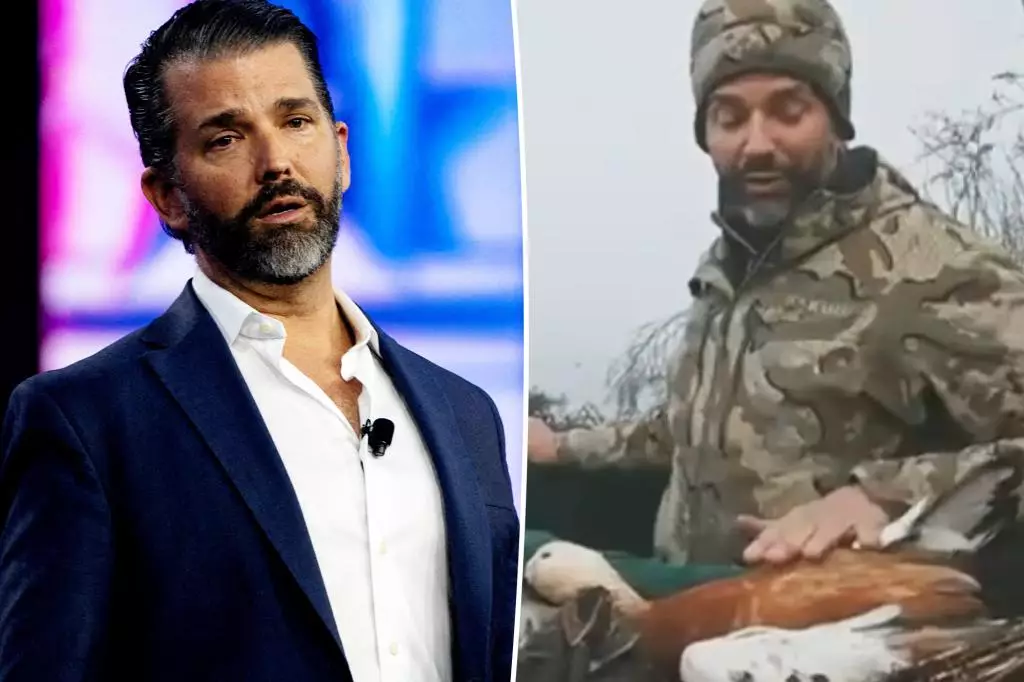A duck hunting excursion featuring Donald Trump Jr. has ignited a significant backlash in Italy, leading to an ongoing investigation by the Venice Prosecutor’s Office. The inquiry, prompted by a complaint from Green politician Andrea Zanoni, casts a critical spotlight on the practices surrounding hunting, particularly regarding the treatment of protected species. While Trump Jr. himself is not directly named in the legal claim, the situation has escalated sharply following the release of a video showcasing the expedition, which was shared on his website, Field Ethos. This incident has raised ethical concerns about hunting practices, environmental awareness, and the legality of taking certain species.
Content of the Controversial Video
The video in question depicts Trump Jr. and his associates engaged in a hunting activity in proximity to Venice. Among the downed birds featured prominently in the footage is a duck which has been identified by experts as potentially being a Ruddy Shelduck, a species that is notably rare and protected across Europe. This bird’s presence in the hunting tally exemplifies the critical issue at hand: the legality and ethics of hunting practices among affluent hunters. Despite claims from Trump Jr.’s representatives insisting that all necessary permits were secured, the implications of their hunting behavior raise alarm bells about conservation efforts and the repercussions of targeting protected wildlife.
Zanoni, the activist behind the complaint, contends that regardless of the circumstances surrounding the death of the duck—whether it was shot by a hunter in the group or possibly fetched by a retrieving dog—the law must apply universally to anyone found with a protected species. He has underscored the responsibility that comes with such activities, particularly for individuals of high profile, suggesting that visibility to such actions can influence public perceptions of wildlife conservation. The accountability expected from figures like Trump Jr. is essential in maintaining ethical hunting practices, which can sway broader attitudes toward preservation.
Massimo Buconi, president of the Italian Hunting Federation, provides another layer of complexity to the discussion by emphasizing the legal ramifications associated with attempting to hunt protected species like the Ruddy Shelduck in Italy. His opinion aligns with many conservationists who argue that the rules surrounding hunting must be adhered to rigorously, especially when public figures are involved. Such scrutiny is necessary to ensure that laws aimed at preserving wildlife are respected, as any disregard can lead to devastating implications for biodiversity.
This incident is not the first time Trump Jr. has found himself at the center of hunting-related controversies. A prior episode in Mongolia, where he reportedly shot an endangered species of sheep, adds a historical context to the current scrutiny. Despite obtaining a retroactive permit, public outcry and ethical questions lingered long after the incident. This pattern suggests a persistent disconnect between affluent hunters and conservation ethics, especially when privileges of wealth intersect with activities that can endanger wildlife.
While Trump Jr. claims adherence to hunting regulations, the fallout from this investigation underscores the broader implications of hunting practices among public figures and the critical need for enduring commitment to conservation. This case will likely serve as a pivotal moment in discussions around hunting ethics and the responsibilities that come with privilege.

